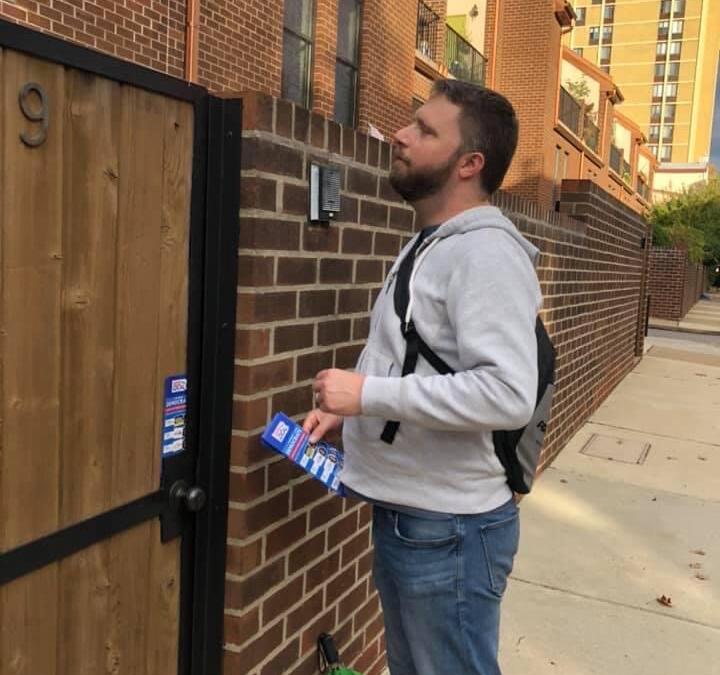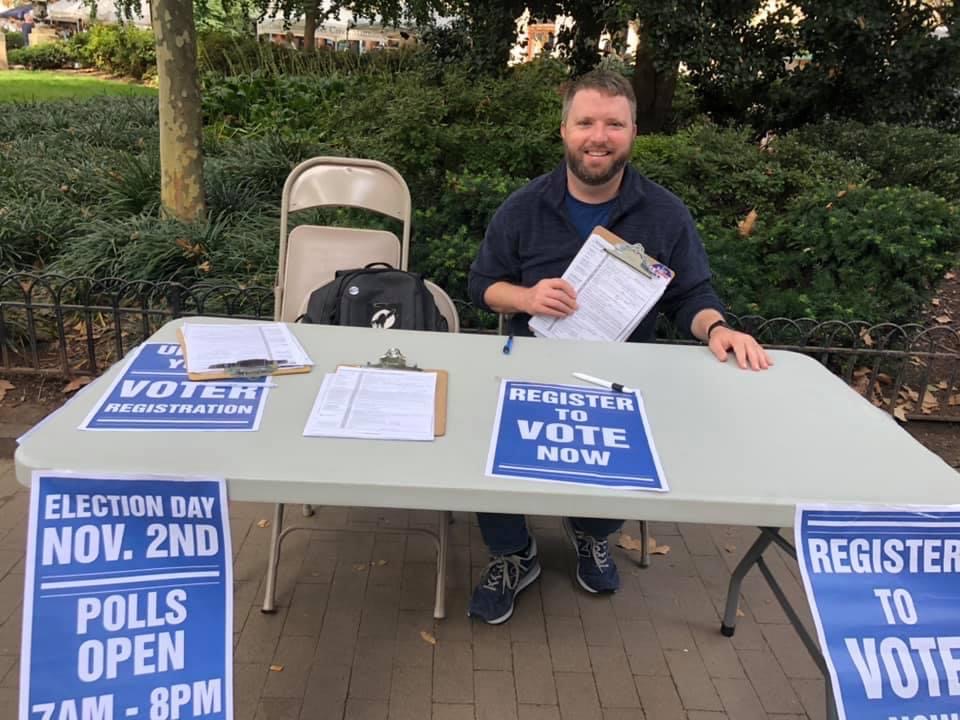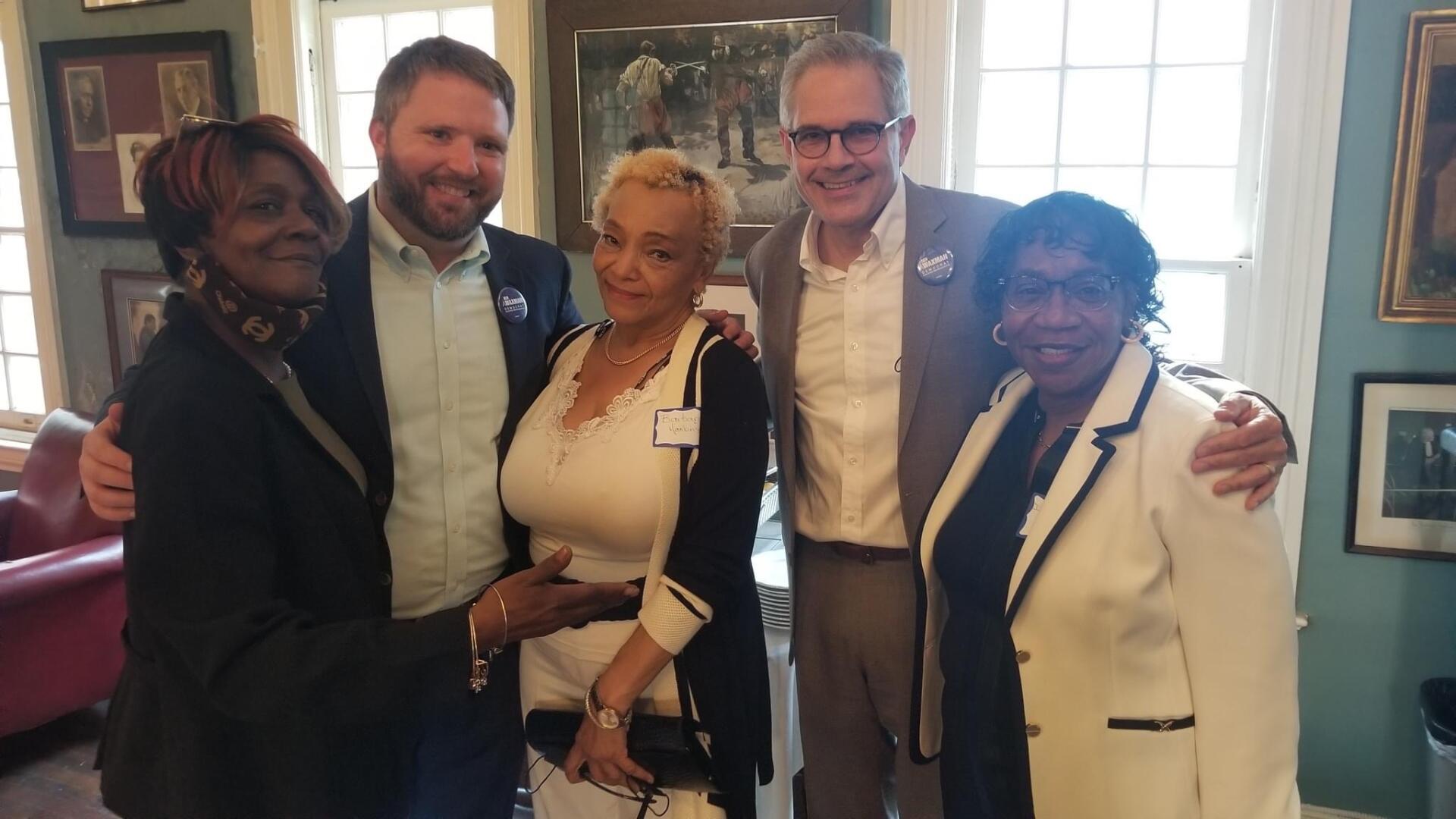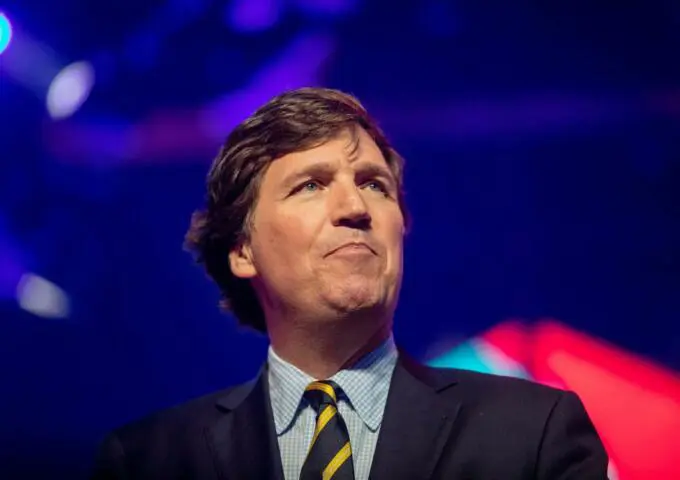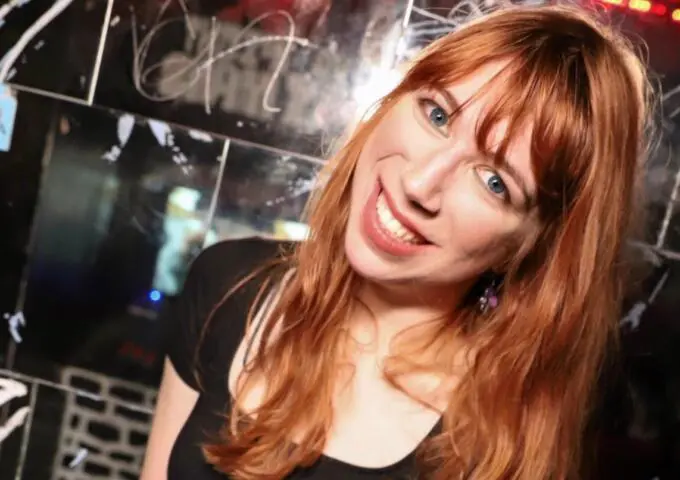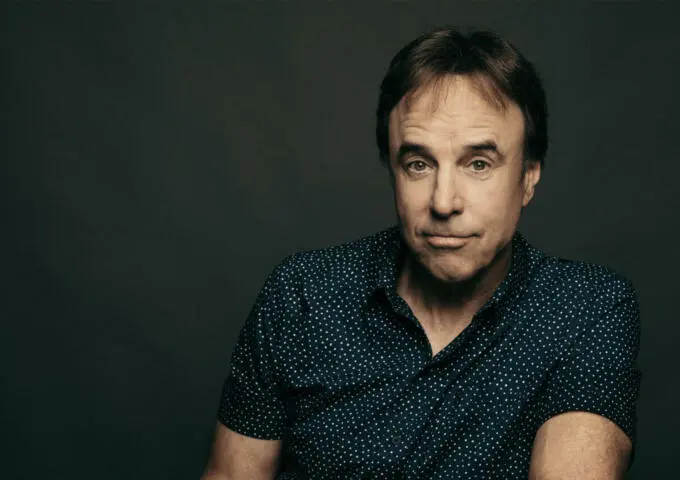When PA State Rep. Brian Sims decided to run for Lt. Governor and vacate his seat in the PA House of Representatives (which includes the Gayborhood), a formidable group of Democratic primary candidates emerged, including LGBTQ+ community activists Deja Lynn Alvarez and Jonathan Lovitz. But in the end it was Ben Waxman who came out ahead. Waxman now faces Republican challenger Albert Robles – an all but guaranteed win in the Democratic stronghold.Waxman is a former journalist and community activist who also did communications work for Philly’s firebrand DA, Larry Krasner.
PW caught up with Waxman to find out how he plans to address pandemic relief, LGBTQ+ issues, public safety and more – along with his approach to House Republicans who continue to introduce controversial, restrictive legislation addressing topics like abortion and free speech.
PW/Karl Michelfelder: What have you been doing to gear up for the November election? I know your district already skews very blue.
Ben Waxman: Well, it’s a very well-educated district. So regardless of what the party is, people do want to know what your positions are. They research their candidates before the election. We are still talking to voters coming off the primary and looking to see where in the district we want to improve and do more outreach to, based on the primary results. So that’s really been the focus and it’s been a great experience so far.
PW: I haven’t really been able to find any policy positions from your opponent, Albert Robles. How would you say you contrast with him politically?
BW: I honestly don’t know. You know, their campaign has not been in touch with us at all and I haven’t really talked to anybody who has been in touch with their campaign. So I’m not sure what they’re emphasizing. I know that we may have a different view about cryptocurrency and the viability of that, but I’m not sure that that’s an issue that he’s campaigning on. So I’d rather defer that to him and let him speak for himself and I’ll speak for myself. And that’s probably the best way to approach it.
PW: So you’re running to represent the Gayborhood which is a big chunk of your district. How would you counter the Republican positions regarding LGBTQ+ issues, especially in Pennsylvania, should they hold their majority in the House?
BW: First and foremost, we were really proud to win the Gayborhood. We had a primary with great candidates in it. We won all but two divisions in the Fifth Ward, which is the ward that covers the Gayborhood. So I feel very good about that support going into the general election campaign. This, of course, is a reminder of the expectations that people have for their rep to stand up to this sort of growing homophobia that seems to be resurgent within the Republican Party. We’re seeing it in a lot of different ways. They’re going after everything from what folks can be read in classrooms to who is allowed to do story time for kids. So I think we have to be really, really clear that it’s unacceptable and not get on to any kind of slippery slope where we make any kind of accommodations and give back what we’ve gained over the past ten years. It is a fight that has no room for compromise in my mind.
PW: Crime in the city has been on the rise. What are your thoughts about public safety in your district?
BW: Public safety is very important to me. It’s something that a lot of people in the city are talking about in different neighborhoods. It’s touching everywhere. One of the things we learned during the pandemic was that we can’t have a police officer on every corner. I don’t think anybody really wants that. But what I also realized during the pandemic was that having people on the street is a critical thing for making the neighborhoods feel safe. So getting more people back in Center City, going to restaurants, bars, coming in during the day to shop. I mean, I always saw those as economic things for the neighborhood. But I think what I’ve realized over the past couple of years is how much that really has to do with public safety.
I’ll give you a perfect example. Pride was finally back this year. I don’t know that I had understood how important it was just to get Pride back. You know what I mean? Just to get that one event or series of events and what a critical role that plays to just keeping things safe and keeping people feeling that the neighborhood is filled with people and that adds to public safety. So for me, getting big events back to Center City in whatever form that is, I see as a critical thing for public safety – getting people back into the city and making sure that the people, those of us who live here, feel safe and that there are eyes on the street.
I also think that we have to recognize that what happens in other parts of Philadelphia impacts what happens in Center City. And for me, that has to do with violence prevention. We have to do something to address the gun violence that has really gripped some of the other neighborhoods around the city that haven’t affected Center City as badly. It impacts overall how people view the city, whether they feel safe or not, whether they want to come downtown at all. A lot of my colleagues, particularly representing predominantly African-American neighborhoods, have been working hard to bring back more funding for violence prevention efforts. I want to be supportive of those efforts and supportive of my colleagues who are already doing that work, because it benefits all of us.
PW: You have focused heavily on the public health response to COVID. What changes do you suggest the city make for future health issues, including the current concern over monkeypox?
BW: So obviously there are issues with the monkeypox response and vaccines not being widely available, and we’re running out of appointments in Philadelphia. And so I know that some of my colleagues in the House, Malcolm Kenyatta in particular, are already raising an alarm about how we’re handling monkeypox, that it’s not being done appropriately, it’s not being done aggressively enough. And it’s sort of become this idea that if you contain it in one community, then the rest of the city or everyone else doesn’t have to worry about it. That’s obviously not true. We know from the history of pandemics and communicable diseases like this is not how it works.
More generally speaking, I’m not a doctor, so I have to trust scientists. I have to trust the medical community about what the appropriate response is. But I will say this: I am a communications person. I was a journalist and have spent pretty much my whole career helping elected officials talk to the public in one way or another. We have done a terrible job in communicating around the pandemic. I don’t think at any level the government has done a good job at communicating expectations, communicating why people are being asked to make the sacrifices that they’re making. There are just a lot of different levels in which the government as a whole has fallen down on communications around the pandemic and other big public health issues. So for me, I want to help craft not just the policy response, but how to communicate that response to the public so that we have the buy-in that we need, which I don’t think really ever happened with the pandemic.
PW: In the wake of the recent Supreme Court decision, how would you plan to fight back against anti-choice legislation, which I believe has already started to be kicked around in Pennsylvania?
BW: The most important thing going into 2022 is to make sure that people are registered to vote and are showing up for a midterm election, which we often as Democrats have a hard time showing up to. So I think we need that kind of strong grassroots effort door knocking, canvassing, phone banking, volunteers, all the things that you need to really turn up the heat and to excite people.
As far as the legislative response goes: it depends on what the configuration is, right? If we have a Republican House of Representatives, we have a Democratic governor or vice versa, it’s going to change the strategy. But I think that we need to be clear, again, that on these issues, there’s not room for compromise and there shouldn’t be room for compromise. I am not going to Harrisburg with the idea that we’re going to cooperate or coordinate with Republicans in order to get small things done. We have to be willing to fight every step, every inch, because that’s the moment that we’re in.
And obviously around access to abortion and reproductive health care – that’s the most critical thing that they’re coming for, but they’re also coming for the right to join the union. They’re coming for freedom of speech and they want to decide what educators teach. They’re coming for so many different things.
I’ll give you one example of the kind of aggressive thing that I was very happy to see. I saw that the city of Philadelphia made a very significant contribution to the Abortion Liberation Fund. This is a fund that exists directly to pay for women to get the care they need and specifically to pay for reproductive care. I think that that becomes a political act in the climate that we’re in. And I think that that’s the right kind of thing that the government needs to be doing, which is to provide the funds necessary so that people who are in poor or vulnerable situations who need access can get it. And we should not make any sort of compromise or apology for that.
PW: How would you propose to begin to reverse policies that have disproportionately affected communities of color, including drug policy and wage inequality?
BW: I think it’s a really important question. It definitely feeds into what I said earlier. Just because something is happening in another district, it doesn’t mean that it’s negatively impacting my district and it doesn’t mean that it’s not positively impacting the district. You know, we have really, really serious issues with inequity and inequality in Philadelphia. We have a tremendously high poverty rate that is overwhelmingly shouldered by African-American and Latino communities. And while my own district may not reflect that reality, it’s still impacted by the fact. So to me, addressing that is the most important thing.
In addition, I believe that violence prevention is just as important. I see Philadelphia as one whole city and we are going to rise and fall as one whole city. And so I have to be really concerned about what’s going on in the rest of the city if I want my district to succeed, and vice versa. So I will go into Harrisburg remembering that and holding that close and trying to be supportive of my colleagues who have been fighting some of these battles for a very, very long time.
Criminal justice reform is a huge area of interest for me, given my professional background and working through the DA’s office. You can expect me to introduce an omnibus criminal justice bill that is going to address a lot of different areas. And it’s going to be written in such a way that people can take whatever pieces they want of it and use the legislation how they need to. But we’re going to address incarceration, the death penalty, mandatory minimums, probation and parole. It’ll be really something that is meant to be a sea change in how state law interacts with the criminal justice system. So people should be on the lookout for that and more things like that. I think big things are what people can expect.
PW: Big things with minimal compromise and sticking with Democratic values.
BW: Just realizing what time it is, you know what I mean? Like what’s going on in our country and what the state of the Republican Party is.
PW: Final question, and I think you just probably answered one of them, but what would you say your first priorities after taking office should you win in November?
BW: I think my first priority is working in the district to address the issues that people are concerned about, namely recovery from the pandemic. That and recovering from the pandemic in a way that addresses some of the inequalities and inequities that grew worse during the pandemic. So that means for me, it’s like public education funding. It’s getting our transportation infrastructure back up and running to the point where we have a lot of people coming in and out of the city all the time. And so to me, recovery from the pandemic, that has to be the top priority. And figuring out how that fits into an overall statewide agenda of making sure that people are coming back from what was an extremely difficult couple of years for everybody.
What I would say beyond that, is to help people with serious health issues, preexisting conditions or autoimmunity. My wife has very, very serious immune issues. That doesn’t matter how many boosters, how many shots, she’s always going to be worried about catching something. And I think that’s a reality for a lot of people who have these health issues. And just pretending like those people don’t exist is a pretty intolerable way to approach that situation.
